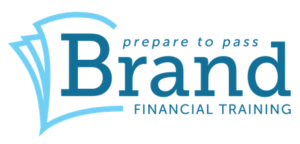For Professional Paraplanner’s TDQ (Training, Development and Qualifications) series, we have teamed up with key support providers, such as Brand Financial Training, to provide our readers with the very best in training, development and exam support.
This series aims to provide you with valuable advice and guidance materials to help you achieve your training goals, perfect your exam techniques and test your knowledge of the financial services market.
The following 10 questions relate to examinable Tax year 19/20, examinable by the CII until 31 August 2020.
QUESTIONS
1. Which of the following is NOT regarded as a key cultural driver?
A. Controls
B. Recruitment and T&C
C. Decision making and challenge
D. Ethnic diversity
2. Hans holds preference shares in a listed company. Which of the following statements are true regarding his holding? Tick all that apply.
A. Dividends are usually paid half-yearly.
B. He will have voting rights like ordinary shareholders.
C. Ordinary shareholders dividends are paid before preference shareholders.
D. They usually pay a fixed rate of dividend.
3. Maureen wants to invest tax efficiently for her daughter born in June 2019. Which of the following products would best enable her to do this?
A. A Personal Pension and Junior ISA
B. A Junior ISA and a Child Trust Fund
C. A Child Trust Fund and a Personal Pension
D. A Junior ISA and a Friendly Society Plan
4. Following divorce, an offset order is being applied to pension benefits from Clive’s defined benefit scheme. Which of the following would not apply?
A. A cash equivalent transfer value calculation will be made to establish the amount of offset.
B. Any offset calculation should take account of the possible income tax payable on any pension.
C. Re-marriage of the ex-spouse will terminate the offset order.
D. This will be a “clean break” arrangement.
5. Who of the following would be eligible for Statutory Sick Pay?
A. Philip, employed part-time and not paying any National Insurance contributions
B. Steven, self-employed and paying Class 2 and Class 4 National Insurance contributions
C. Brenda, currently on a career break and paying Class 3 National Insurance contributions
D. Miriam, employed and paying Class 1 National Insurance contributions
6. Kelsey, a fund manager with a medium-sized investment firm in the city, has decided to take a significant divergence from his fund’s benchmark and gone overweight in emerging markets. What could this mean?
A. It would suggest Kelsey is seeking out-performance and represents an opportunity for further investment into the fund
B. Kelsey is an effective fund manager and this is evidence the fund is actively managed
C. Kelsey is adopting a contrarian approach to fund selection
D. The divergence represents greater risk so greater short-term volatility would be expected in Kelsey’s fund
7. A Trust that holds assets for a child until they reach the age of 18 is called a:
A. bare trust
B. discretionary trust
C. interest in possession trust
D. accumulation and maintenance trust
8. What is the income tax position if the benefits from a pre-funded long term care insurance policy are paid directly to the policy holder?
A. No tax payable
B. Tax payable at the policy holder’s marginal rate
C. Income element tax
D. Tax payable at 20%
9. Pauline is in poor health and has been told that she has a relatively short life expectancy. She would like to release some equity from her house to pay for an expensive holiday with her family whilst her health permits it, what type of plan is likely to be unsuitable for her?
A. Lifetime mortgage with interest paid
B. Home Reversion Plan with minimum inheritance guarantee
C. Home Reversion Plan without minimum inheritance guarantee
D. Drawdown Mortgage
10. Under the Leasehold Reform, Housing and Urban Development Act 1993, what is considered to be a ‘long lease’?
A. 21 years or more
B. 49 years or more
C. 89 years or more
D. 99 years or more




























